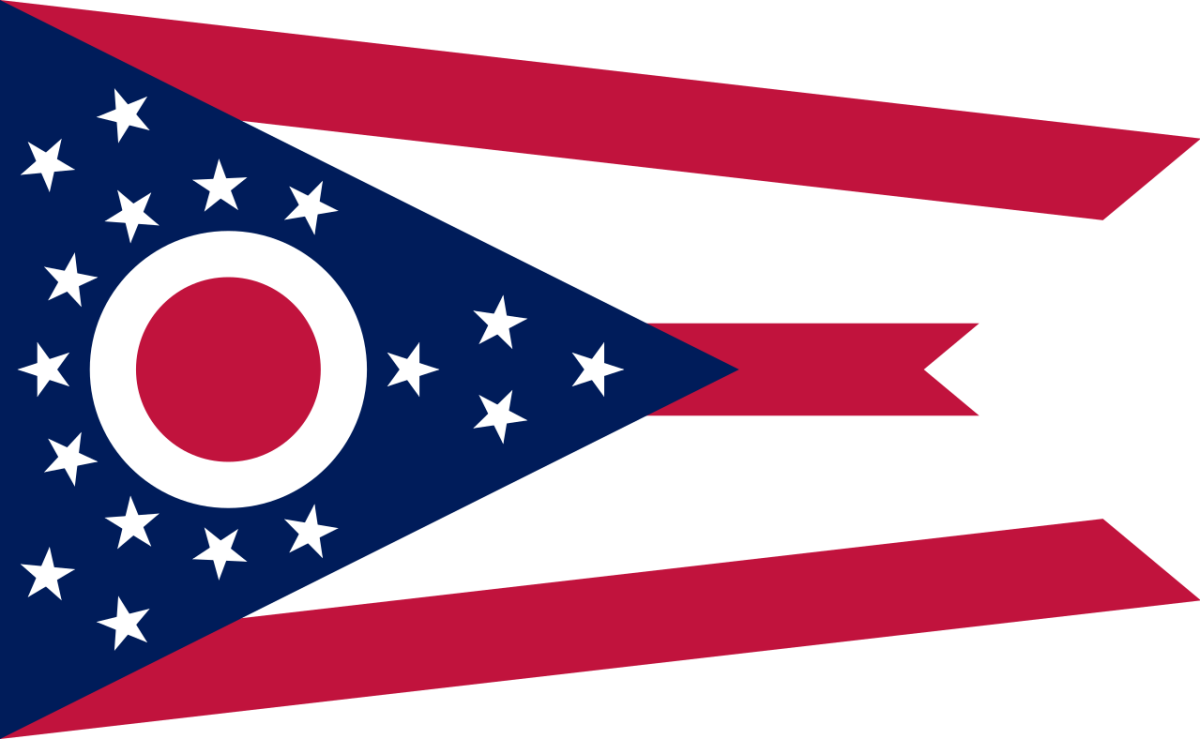Ohio Workers’ Compensation Laws

Occupational injuries and diseases can occur in any workplace environment, and Ohio is no exception. In 2021, the United States Bureau of Labor Statistics found that at least 78,000 nonfatal injuries and illnesses were recorded among the state’s private industry employers, translating into an average incidence rate of 2.2 cases for every 100 full-time employees. Over 41,200 of the reported cases involved more severe injuries and illnesses, resulting in restrictions, job transfers, and absences from work.
In terms of total recordable cases, the highest incidence rate of 3.5 was recorded among workers from the educational and health services sectors, followed by those from local government agencies with 3.2. Employees from the manufacturing and trade, transportation, and utilities sectors recorded similar average rates of 2.7 and 2.6, respectively.
When they fall sick or suffer injuries at work, Ohio employees can file compensation claims to be reimbursed for the losses they suffer due to their illness or injury. However, the process can be tricky, especially for those unfamiliar with the state’s guidelines on workers’ compensation.
As such, this article will provide an overview of the statutory factors and requirements one will usually encounter when filing a compensation claim. It will also discuss how to submit a claim to the proper agencies within the time allotted to employees.
Ohio Workers’ Compensation Insurance Requirements
Ohio requires all employers with one or more employees to obtain and maintain workers’ compensation insurance, regardless of whether their workers are full-time, part-time, seasonal, or temporary. This applies to independent contractors and subcontractors, as well as partnerships, associations, and domestic household employers.
Such a policy allows a company or corporation to cover expenses related to an employee’s treatment and losses in case they suffer work-related injuries or illnesses. A corporation’s employees are also taken into account for workers’ compensation, though exceptions apply to corporations owned by a single person with no employees.
Any employer who obtains workers’ compensation insurance coverage must post notices related to their policy as proof of coverage in compliance with state laws. These notices must be within the workplace or the employer’s place and furnished annually by the Ohio Bureau of Workers’ Compensation. Additionally, they must state and display that the employer has been authorized to compensate their employees in case of injuries or illnesses.
Other required notices include those that inform workers of the deadline and related guidelines for filing a workers’ compensation claim. Similarly, these will be provided by the BWC and displayed in visible areas within the workplace.
Obtaining a Workers’ Compensation Insurance Policy in Ohio
Companies in Ohio can get their insurance coverage by submitting a U-3 application form to the BWC with a non-refundable fee of $120. When applying for workers’ compensation insurance, a company must provide all requested information, which typically includes:
The company’s federal identification or Social Security number.
The company’s operations details for employees.
The company’s business contact and demographics.
The name of the company’s owner (or those owning partnership).
The first hire date and 12-month estimated payroll of the company’s employees.
The description of the company’s operations.
Generally, coverage types that differ from standard private-employer coverage include:
Domestic coverage for household employees.
Longshore and Harbor Workers’ Coverage for marine industry employers.
Coal mine operators’ coverage, which may also be obtained by employers in the coal industry to comply with the Federal Coal Mine Health and Safety Act.
Elective coverage for specific employers, including owners or ministers in limited liability companies acting as sole proprietors or partnerships.
Volunteer coverage for those who engage in emergency service duties as volunteers, such as firefighters, medical technicians, and auxiliary police officers.
Those who fail to maintain workers’ compensation insurance in Ohio face varying penalties. Typically, if a company fails to file a payroll report within the given deadline, they will be fined between $3 and $15 and an additional charge equal to 1% of the premium due. In addition, companies that fail to pay their workers’ compensation premiums on time will be fined $30 and face a penalty charge equal to 15% of the amount due.
Ohio Workers’ Compensation Benefits
Workers’ compensation insurance in Ohio generally provides the following benefits for employees:
Present and future medical expenditures for complications caused by work-related injuries or sicknesses.
Temporary total disability caused by a worker’s injury or illness.
Permanent partial or total disability caused by an injury or illness.
Lost wages due to a worker being unable to work while injured or sick.
Death benefits and funerary expenses if the worker died from injury or illness.
However, note that workers’ compensation may not apply to independently contracted workers, and it does not cover certain injuries and those that occur under specific circumstances. These include:
Injuries during an optional recreational event sponsored by the person’s employer, such as group outings, company picnics, and sports activities during such events.
Injuries caused by a vehicular accident while an employee is going to work, whether they are driving their own vehicle, riding as a passenger in a colleague’s vehicle, or taking public transit.
Pre-existing injuries or conditions that an employee has, though exceptions may apply if an incident in the workplace aggravates the person’s injury or condition.
Injuries that can be addressed by standard first-aid treatments.
In cases where an employee is involved in a motor vehicle accident while going to work, they may obtain compensation for their injuries and subsequent losses by filing a personal injury claim or lawsuit instead. The damages they recover from such legal action are similar to the benefits they can receive under workers’ compensation coverage.
Exemptions Involving Workers’ Compensation Benefits in Ohio
Ohio law also allows specific employers and employees who are part of certain religions to forego their obligation to pay and waive their right to obtain workers’ compensation benefits, respectively. An employer can choose this option by submitting a U-3E form to the BWC; once approved, the employer will no longer be required to pay insurance premiums or conduct assessments involving any of their workers who fall under the exemption. However, they are still required to pay applicable minimum administrative charges, as well as the premiums of unexempted workers.
How to File a Workers’ Compensation Claim in Ohio
Generally, workers’ compensation claims in Ohio must be submitted by the employee concerned or their dependents to the BWC. A claim is classified under one of the following categories:
A medical-only claim where the injured worker could not report to work for seven days or less due to the injury they suffered but is now able to work.
A lost-time claim where the injured worker could not report to work for more than eight days.
When filing a claim for workers’ compensation benefits, a person must prove that they are an employee of the employer or company they work for, that their injury was accidental, and that their injury occurred during and because of their job.
When Is the Deadline for Workers’ Compensation Claims in Ohio?
Under Ohio law, an employee will be barred from receiving workers’ compensation benefits if they fail to file their claim within one year from the date of the incident that caused their injury or sickness. As such, once an employee is injured or falls sick due to a work-related hazard or accident, they must seek medical treatment and inform their employer as soon as possible.
Moreover, they must notify the Ohio Industrial Commission or the BWC through a written notice regarding their claim. Alternatively, their employer can pay their wages instead of compensation for total disability once they are informed of the injury or illness in question.
Those filing a claim for an injury or death caused by an occupational disease must do so within the same one-year period. They may file a claim beyond this deadline, but it should be within six months after a licensed physician’s diagnosis. Alternatively, they can file within one year from the most recent date among the following:
The date the person found out that they were suffering from an occupational disease, as determined by an official medical diagnosis.
The date the person first received treatment for their disease.
The date the person first stopped working due to their disease.
Step-By-Step Guide on Filing a Workers’ Compensation Claim in Ohio
After seeking medical treatment, here are the steps to filing a worker’s compensation claim:
Preparing the Claim Form
Firstly, an individual who wishes to file a workers’ compensation claim using a First Report of Injury, Occupational Disease or Death form must state whether it is a medical-only or lost-time claim, as specified above.
2. Collecting Valid Proof of Injury or Illness
Afterward, they must provide the required proof regarding the injured worker’s employment status and the nature of their injury. The people who can file a claim other than the worker in question can include:
The employee’s medical provider.
The employer.
An authorized representative.
Any interested party, including the employee’s spouse.
3. Filing the Claim Officially
An individual who wants a medical provider to file a workers' compensation claim on their behalf may ask the provider to submit the claim to the Ohio BWC or their managed care organization. This must be done within 24 hours of the worker’s visit.
On the other hand, a worker filing a claim themselves or through a representative, an interested party, or an employer can submit their FROI form to the BWC through the following avenues:
Mail or fax at 866-336-8352, though mailing a claim slows down the processing time.
Online if the individual filing the claim has an e-account on the BWC website.
A direct phone call to the BWC at 800-644-6292 or to a BWC customer service office within the local area; a representative will complete and submit the form on the person’s behalf.
Unlike claims filed by a medical provider, there is no 24-hour time limit for claims filed by an injured worker, their employer, their representative, or any interested party. However, as mentioned above, their injury or sickness must be reported as soon as possible. Medical reports related to their subsequent treatment can be used to strengthen their claim for compensation.
4. Waiting for the Verdict
Once a claim has been filed, it will take an average of 28 days before the BWC approves it and grants the injured worker’s compensation based on the seriousness of their injury and their earnings prior to getting hurt or sick.
Guidelines for Self-Insured Workers’ Compensation Claims in Ohio
Self-insuring employers in Ohio may follow their own process when evaluating workers’ compensation claims but still adhere to the state’s related laws or guidelines. In such a setting, the employer is the one who makes decisions related to an injured worker’s benefits in terms of medical treatment, compensation for further losses, and other applicable allowances. A medical provider can also file a claim on an employee’s behalf.
A self-insuring employer will cover expenses related to an injured worker’s medical care, with prior authorization being required for consultations, surgeries, physical therapy sessions, and hospital stays. However, no authorization is required for emergencies.
Bills involving the injured worker’s treatment must be submitted by their doctor or therapist within one year from the date when they were treated. Upon receiving these bills, the employer must pay them within 30 days unless more information is requested or the bill is denied.
Note that the BWC assigns self-insured workers’ compensation claims a claim number. Exceptions apply if a worker’s injury results only in seven or fewer calendar days of disability. Medical treatments for a condition not recognized by an injured worker’s claim will not be covered by their employer or the BWC. However, a worker can file a request to have the condition recognized as part of their claim.
What Should One Do If a Workers’ Compensation Claim in Ohio Has Been Denied?
In Ohio, an injured worker, their employer, or their representative can file an appeal for a compensation claim that has been denied by the BWC within 14 days. An appeal can be initiated by submitting an IC-12 form or a written document containing the names of the injured worker and their employer, the claim number assigned to them, the date of the BWC order being appealed, and the reason for it. Those whose applications for compensation were denied because of a condition not recognized by their claim can file a C-86 form along with copies of their employer’s decision.
Upon receiving an appeal, the BWC will forward it to the Ohio Industrial Commission, which will conduct a formal hearing at the customer service office closest to the injured worker. The Commission will notify the parties involved of the hearing’s venue and schedule and provide them with a written notice describing its decision.
If an appeal is allowed, the BWC may offer additional benefits, including extra compensation or approvals for requests related to a change of physician. On the other hand, if the Commission decides against the appellant, the latter can approach the Court of Common Pleas to file another appeal.
Legal Resources for Injured Workers in Ohio
Ohio Bureau of Workers’ Compensation
The Ohio Bureau of Workers’ Compensation is where claims related to workers’ compensation insurance are submitted and processed. Through its website, injured employees and their representatives or dependents can file their claims directly. At the same time, employers can find information on how to apply for insurance coverage in line with the state’s requirements.
The Bureau also helps workers look for specific medical providers that can assist with long-term treatment, displaying results based on where a worker lives. In addition, those dealing with issues related to suspected workers’ compensation fraud can report the incident on the BWC website or call 1-800-644-6292.
The Ohio State University - Human Resources
The Ohio State University’s Human Resources department has an occupational medicine team that treats injured workers and assists in documenting medical records and complying with employer guidelines. It also offers access to basic resources on the workers’ compensation process in the state, as well as the potential benefits employees can avail of after filing a claim. Those who seek the team’s assistance can visit McCampbell Outpatient Care, Suite 301, at the university’s central medical campus.
Ohio University - Human Resources
Ohio University’s HR section has a worker’s compensation department that provides administrative services to injured or sick employees. Its members work within the boundaries dictated by state law and help workers seek treatment that meets physician requirements. Additionally, they assist in claim document preparation for the timely processing of an injured worker’s benefits. For additional queries, the HR section can be reached via telephone at 740-593-1636 or e-mail at uhr@ohio.edu.
Expertise.com StaffAuthor
Step into the world of Expertise.com, your go-to hub for credible insights. We don't take accuracy lightly around here. Our squad of expert reviewers, each a maestro in their field, has given the green light to every single article you'll find. From rigorous fact-checking to meticulous evaluations of service providers, we've got it all covered. So feel free to dive in and explore. The information you'll uncover has been stamped with the seal of approval by our top-notch experts.




